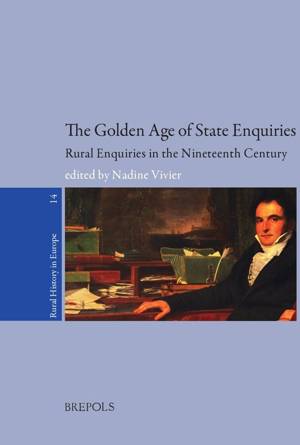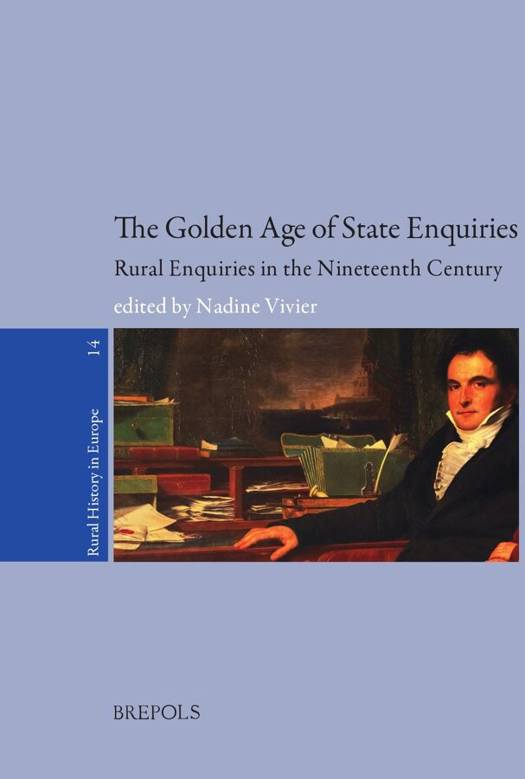
- Afhalen na 1 uur in een winkel met voorraad
- Gratis thuislevering in België vanaf € 30
- Ruim aanbod met 7 miljoen producten
- Afhalen na 1 uur in een winkel met voorraad
- Gratis thuislevering in België vanaf € 30
- Ruim aanbod met 7 miljoen producten
Zoeken
The Golden Age of State Enquiries
Rural Enquiries in the Nineteenth Century. from Fact Gathering to Political Instrument
Nadine Vivier
Paperback | Engels
€ 90,10
+ 180 punten
Omschrijving
Any state intervention in society requires a high degree of knowledge. This is usually given by a state-sponsored enquiry. Some of these surveys can be traced back to Antiquity, but by the nineteenth century enquiries proved to be different because the nature of the state and the distribution of political influence had changed, and the scientific and financial means to investigate had progressed. This new context prompted states to launch large enquiries to assess transformations in the rural world: new techniques, opening to long distance trade. The heart of the nineteenth century was the golden age of state enquiries. Inspired by the nascent sociology, they fulfilled the desire for scientific knowledge accessible to everyone and the search for innovative solutions for the improvement of agriculture and rural life. Most of those enquiries about the countryside are well known by historians who have built their work on the vast data collections. In a different approach, the present volume does not focus on their content; it examines the origins and functioning of the enquiries as new and important objects of historical research. Fourteen studies are gathered from across twelve countries. The main focus is on Western Europe, with broadening perspectives to the East (Ottoman Empire) and West (Canada and Mexico). The International comparative perspectives highlight the importance of transnational cultural transfers in the nineteenth-century Atlantic world. French and British methods were considered models of progress and of a civilized state. Statistical methods and the needs of the administration were discussed and adapted in each state according to their conception of state power, in the context of the construction of the nation state.
Specificaties
Betrokkenen
- Auteur(s):
- Uitgeverij:
Inhoud
- Aantal bladzijden:
- 291
- Taal:
- Engels
Eigenschappen
- Productcode (EAN):
- 9782503552842
- Verschijningsdatum:
- 29/10/2014
- Uitvoering:
- Paperback
- Formaat:
- Trade paperback (VS)
- Afmetingen:
- 154 mm x 237 mm
- Gewicht:
- 489 g

Alleen bij Standaard Boekhandel
+ 180 punten op je klantenkaart van Standaard Boekhandel
Beoordelingen
We publiceren alleen reviews die voldoen aan de voorwaarden voor reviews. Bekijk onze voorwaarden voor reviews.








